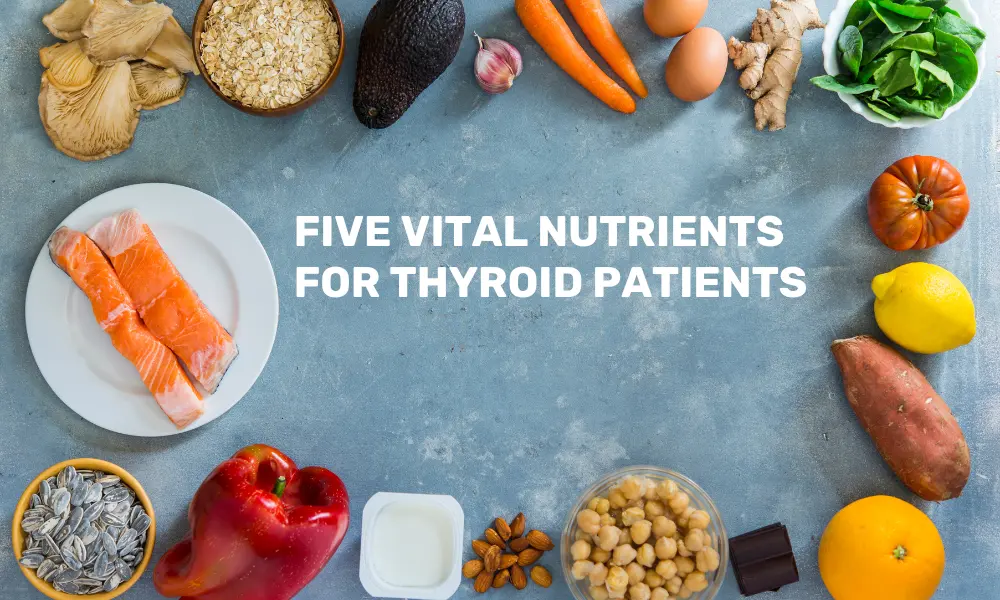The thyroid is one of the most important organs that helps to determine the optimal functioning of the body. What we eat dramatically determines our thyroid health.
The thyroid gland helps to regulate digestive functioning, heartbeat, and more. When these glands do not produce the required hormones, hypothyroidism may result.
Diet plays an important role in determining overall health. Thyroid health is influenced by various nutrients that play a vital role in supporting the proper functioning of the thyroid gland. While individual nutrient needs may vary, here are five essential nutrients that are important for thyroid patients:
Five Important Nutrients for Thyroid Health
Vitamin D: Vitamin D deficiency is usually linked to thyroid disorders. Adequate vitamin D levels are important for thyroid function and overall health. One can get vitamin D from sunlight exposure and dietary sources such as fatty fish (salmon, mackerel), fortified dairy products, and egg yolks. Generally, doctors recommend supplementation in case of one has low vitamin D levels.
Selenium: Selenium is a vital mineral that helps convert thyroid hormones. It also acts as an antioxidant, protecting the thyroid gland from oxidative damage. Good dietary sources of selenium may include Brazil nuts, seafood (like tuna, sardines, and shrimp), eggs, legumes, and whole grains.
Iodine: Iodine is a key component in the production of thyroid hormones. Including iodine-rich foods in our diet is crucial for thyroid health. Good dietary sources of iodine may include iodized salt, seafood (such as fish, shrimp, and seaweed), dairy products, and eggs.
Omega-3 fatty acids are rich in anti-inflammatory properties and help reduce thyroid gland inflammation. Good dietary sources of omega-3 fatty acids may include fatty fish, flaxseeds, chia seeds, walnuts, and hemp seeds.
Zinc: Zinc plays a key role in producing and regulating thyroid hormones. It also helps in immune function and supports thyroid hormone metabolism. Zinc-rich foods include oysters, beef, poultry, pumpkin seeds, nuts, and legumes.
It’s important to note that while these nutrients are beneficial for thyroid health, individual nutrient requirements can vary based on different factors, such as the type of thyroid condition, medication use, and overall health status. It is best to work with a registered dietitian who can provide professional guidance based on individual needs and medical history.
FAQ on Thyroid Diet
What should thyroid patients avoid?
Thyroid patients must avoid foods rich in iodine, such as Common salt, seafood, and eggs, as these can make hyperthyroidism worse. Additionally, cruciferous vegetables and cabbage must be avoided.
How to avoid thyroid?
Cutting back on or avoiding sugary or processed foods like sweets and candies, packaged snacks, and commercial baked goods can reduce one’s chances of developing thyroid disease.
Which fruit is best for the thyroid?
Apples, plums, pears, and citrus fruits are abundant in pectins, which help detoxify the body from mercury—one of the most critical metals often connected to thyroid problems.
Can I eat curd in my thyroid?
Dairy products, such as milk and yogurt, are great sources of calcium and vitamin D. these nutrients are important for people with hypothyroidism, as they can help improve bone health and reduce the risk of osteoporosis.
How do I know if my thyroid is OK?
A simple blood test to check thyroid hormone levels can be done to find out if you have hypothyroidism.





